Showing posts with label 1920s. Show all posts
Showing posts with label 1920s. Show all posts
Friday, November 3, 2023
Friday, October 27, 2023
Wednesday, October 25, 2023
Friday, October 20, 2023
Friday, October 6, 2023
Sunday, October 1, 2023
October is Domestic Violence Awareness Month
October is Domestic Violence Awareness Month--an all-too-real horror that many are living through even as the rest of us have fun with imaginary horrors. We as a society tend to still ignore than men can be victims of domestic violence and other forms of spousal abuse.
So, while we can smile at the puns and truths dished out by Flapper Fanny, we can also take steps to understand the causes of domestic violence, learn to recognize victims and abusers, and how to take steps to help them. A good place to start is at this webpage, but the important information can be found here.
Friday, September 29, 2023
Friday, September 15, 2023
Friday, September 8, 2023
It's a Big Fanny Friday!
It's a very special Fanny Friday today, in that it coincides with National Actors Day AND (or should we say "&"?) Ampersands Day. To make this dual celebratory day all the more festive, we are not only bringing you Fanny's thoughts on actors, but we are going BIG & bringing you more than just one cartoon!
Friday, August 25, 2023
It's a Special Fanny Friday!
Today, marks since six months since Flapper Fanny joined the Shades of Gray family. We hope you enjoy these classic cartoons as much as we do, and we plan on continuing to bring them to you for the foreseeable future.
Friday, August 18, 2023
Tuesday, August 15, 2023
An unusual role for Mary Pickford
Suds (1920)
Starring: Mary Pickford, Harold Goodwin, Albert Austin, and Rose Dione
Director: John Francis Dillon
Rating: Six of Ten Stars
A London laundress (Pickford) spins a fantasy that she is a disherited noblewoman who is just waiting to be rescued by her banished lover (Austin). As she tries to make her fantasy a reality, she pushes away and disregards a man who truly loves her (Goodwin).
Perhaps the most tragic thing about Pickford's character in "Suds" is that she is actually the noble character she imagines herself to be, at least in personality. The aforementioned subplot with the draft horse sees her go above and beyond to save it shows her kind and noble character very clearly. She doesn't have the self-esteem and social grace to apply it properly.
Starring: Mary Pickford, Harold Goodwin, Albert Austin, and Rose Dione
Director: John Francis Dillon
Rating: Six of Ten Stars
A London laundress (Pickford) spins a fantasy that she is a disherited noblewoman who is just waiting to be rescued by her banished lover (Austin). As she tries to make her fantasy a reality, she pushes away and disregards a man who truly loves her (Goodwin).
"Suds" is one of those rare films where there's no antagonist whatsoever; the main character is the source of every obstacle to her success and happiness. It's also a film where every cast-member has a degree of presence and likeability that makes the film extremely watchable. Between the talented cast and some excellent photography, the film moves easily from comedy to drama and back to comedy again. Similarly, the subplot involving an aging horse might not have seemed as impactful and relevant as it did.
The leader of this excellent cast is, in every way, Mary Pickford. In the film's real world, her character is at times comedic, at times uncouth bordering on revolting, at times so pitiful it makes the viewer want to cry for her. On the other hand, in the world of her character's imagination, she is poised, elegant, devoted to her lover beyond concern for even her own life. Where the real character is scattered and clumsy, she imagines herself as focused and graceful. It is in this form that we get to see the Mary Pickford we can recognize from other films.
Perhaps the most tragic thing about Pickford's character in "Suds" is that she is actually the noble character she imagines herself to be, at least in personality. The aforementioned subplot with the draft horse sees her go above and beyond to save it shows her kind and noble character very clearly. She doesn't have the self-esteem and social grace to apply it properly.
If you have enjoyed Mary Pickford in other films, I think you're going to enjoy her here, too. She gets to play a character very different from what you have seen her do before, but she also provides some examples of her "standard" performance styles.
Click below to watch "Suds" in its entirety. The version featured has a modern score that works in some places and doesn't in others. For all I know, it might be a random piece of instrumental music that is just repeated over and over... and any of the times when it matches perfectly with the action on the screen is purely luck.
Friday, August 4, 2023
Friday, July 28, 2023
Tuesday, July 25, 2023
'The Good Bad-Man' is Excellent
The Good Bad-Man (1916/1923)
Starring: Douglas Fairbanks, Bessie Love, Sam de Grasse, and Pomeroy Cannon
Director: Allan Dwan
Rating: Eight of Ten Stars
As I've mentioned before, I generally don't have the patience for silent dramas, especially if they run past the 15-20 minute mark. "The Good Bad-Man" is one of a growing number of films I've come across that are an exception to that rule. I don't know if my tastes have changed or if I've just had more luck with picking movies to watch in recent years.
Speaking of Love, I noticed that she spends most of her scenes either sitting down or leaning against posts or walls after taking just a few steps. I don't know if this is just some weird coincidence or if it was supposed to be a character quirk, but I also found myself wondering if perhaps Love perhaps had hurt one of her legs or perhaps her back. What little research I felt inclined to do didn't reveal anything specific, so if it was anything, it was probably just a sprained ankle.
Starring: Douglas Fairbanks, Bessie Love, Sam de Grasse, and Pomeroy Cannon
Director: Allan Dwan
Rating: Eight of Ten Stars
"Passin' Through" (Fairbanks), a wandering outlaw with a heart of gold and a soft spot for those who are defenseless and in need, finds himself falling head-over-heels in love with a young woman (Love) he encounters by chance. This is sets in motion a series of events that will reveal "Passin'" mysterious past and change both their lives forever.
As I've mentioned before, I generally don't have the patience for silent dramas, especially if they run past the 15-20 minute mark. "The Good Bad-Man" is one of a growing number of films I've come across that are an exception to that rule. I don't know if my tastes have changed or if I've just had more luck with picking movies to watch in recent years.
Whatever the reason, I found "The Good Bad-Man" to be very entertaining. It's easy to see why Douglas Fairbanks was such a big star in his day, as he is seems equally natural whether his character is being friendly and playful, or whether he's getting ready to kill someone.
In fact, like the other early Fairbanks picture I've watched and reviewed (the subversive Sherlock Holmes parody "The Mystery of the Leaping Fish"), he is the star of the film in very sense: He's the main character, he has all or is a key part of all the film's best moments, and he has a presence that almost leaps off the screen in every scene. Like their previous pairing, Fairbanks and Love also make a great couple on screen, with acting styles and on-screen chemistry that make them seem like a natural couple. Even the "insta-romance" between the characters doesn't bother me that much here, because Fairbanks and Love compliment each other so well.
Speaking of Love, I noticed that she spends most of her scenes either sitting down or leaning against posts or walls after taking just a few steps. I don't know if this is just some weird coincidence or if it was supposed to be a character quirk, but I also found myself wondering if perhaps Love perhaps had hurt one of her legs or perhaps her back. What little research I felt inclined to do didn't reveal anything specific, so if it was anything, it was probably just a sprained ankle.
Another bit I noticed--that is either a coincidence or an intentional sight gag--was a rider having trouble with his horse both times the band of outlaws saddled up and rode out en-masse. I'm hoping it was an intentional ittle background thing. Perhaps there was even something involving a clumsy comic relief character that ended up getting cut when the film was reportedly shortened for its 1923 release... I wish my imagining is true, because a cowboy outlaw who can't stay on a horse would be hilarious. (Unforunately, we will never know, because there are no known surviving copies of the original 1916 cut.)
Aside from excellent performances from the film's stars, Sam de Grasse has a fine turn as a local bandit leader whose secret connection to "Passin' Through" helps turn the plot upside down and accelerate the film toward its dramatic conclusion. Similarly Pomeroy Cannon, who plays a Federal Marshal who remains a question mark for most of the picture as to whether he was going to be a friend to the main characters or their downfall, also gives a fine supporting performance.
"The Good Bad-Man" is one of the films that have been featured in the Screening Room at the YouTube channel that's loosely connected with this blog. If you like westerns and fast-paced silent movies, you're probably going to enjoy this one. Just click below and watch the tale unfold!
Monday, July 24, 2023
Friday, July 21, 2023
Friday, July 7, 2023
Thursday, July 6, 2023
A fun glimpse of 1920s car culture
Rubber Tires (1927)
Starring: Bessie Love, Harrison Ford, Erwin Connelly, May Robson, Junior Coghlan, and John Patrick
Starring: Bessie Love, Harrison Ford, Erwin Connelly, May Robson, Junior Coghlan, and John Patrick
Director: Alan Hale
After their main bread-winner (Bessie Love) loses her job, the Stack family sells all their belongings, buys a car, and heads on a cross-country journey from New York to start a new life in California. There, in the wilds beyond Los Angeles, the family's patriarch (Erwin Connelly) bought a house and land with the family's savings, gambling oil might be found there. Now, it has to be their home... if they can make there!
"Rubber Tires" is a proto road movie full of fun and lighthearted romance. Bessie Love is in top form as an independent young woman with a never-say-die spirit who is determined to see her family successfully to a new home. The comedy and pacing of the film hold up nicely, and the glimpses provided into life in 1920s America--especially for those of a nomadic bent--are interesting.
Two things I found interesting about the look into the past was the apparent complete lack of requirements to have drivers licenses or car insurance of any kind; Love's character Mary Ellen buys a car from a scrapyard, then just drives off in it. Later, characters are shown trading cars with each other with a level casualness that one might do with pens or hats.
Although motor vehicles as something the masses could own and enjoy were a relatively new thing in 1927, it was amazing how much society's approach to cars has changed over the past century or so. While I realize films aren't accurate reflections of reality, it seems to me that at least the general environment and cultural outlook of the characters has to feel right to viewers, especially when the characters on the screen are living in a world not unlike the real one. The trusting nature that people seemed to have toward each other--even total strangers--was particularly surprising to me, even for a cheerful comedy like this; I can't imagine trading my car to a total stranger for his car without having it checked out by a mechanic! (The one character in the film who is an expert in cars--who amusingly spends about half the movie in a car with no engine and thus being towed along by others as he tries to keep up with the Stacks on their journey--is also the only one who worries about whether the cars being traded for actually run. Everyone else just seems to assume that they will, or that everyone they meet is as honest as they are.)
Perhaps the most remarkable thing about this film is that there is no true antagonist in the story. Any threats toward the Stacks come mostly from the circumstances they encounter. Every character in the film is likeable... even both men seeking to conquer Mary Ellen's heart (played Harrison Ford and John Patrick) are equally upstanding and decent. This is one of those very rare films that is charming and sweet without getting schmaltzy. (The only time when there was an opportunity for truly villainous characters to appear in the story, they are reduced to faceless shadows, basically making them just another circumstance that threatens the Stacks.)
Because the characters are all basically so likeable--due in no small part to each and every major actor in the film having great screen presence--all this film needs is the various threats and hurdles that the Stacks need to overcome to reach their new life in California. The running subplot about the fact they're driving a car worth $10,000 without knowing it also goes a long way to keeping the viewer invested in the outcome.
Click below to watch "Rubber Tires". I hope you enjoy it as much as I did!
Friday, June 16, 2023
Subscribe to:
Posts (Atom)
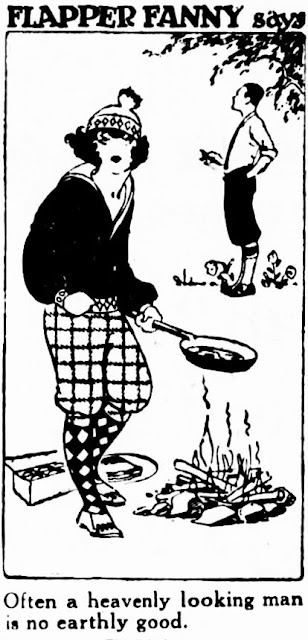









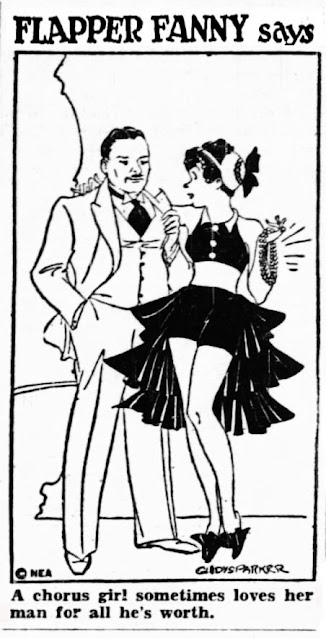



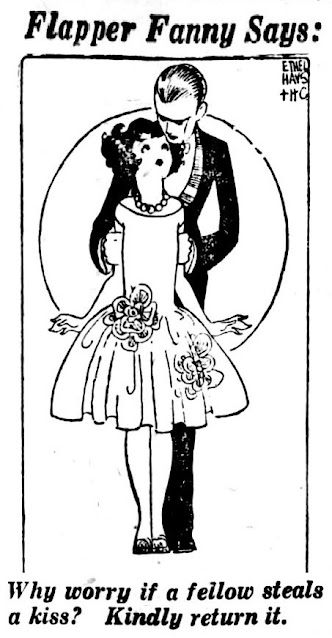







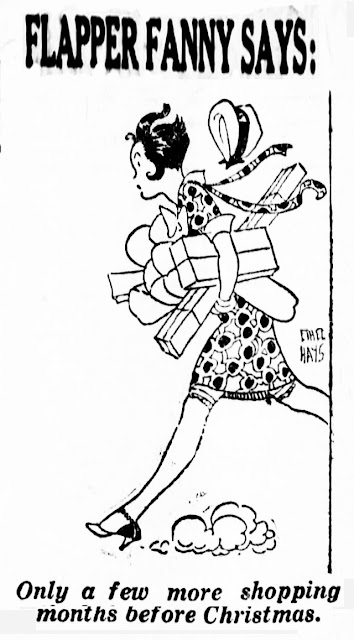
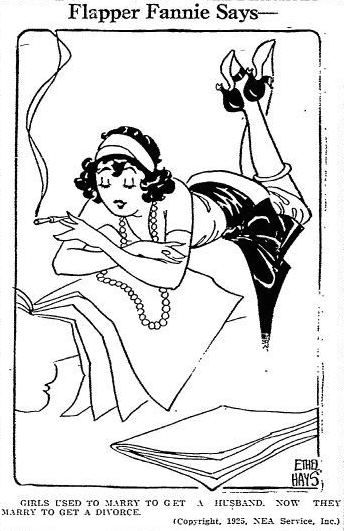















.jpg)






.jpg)
